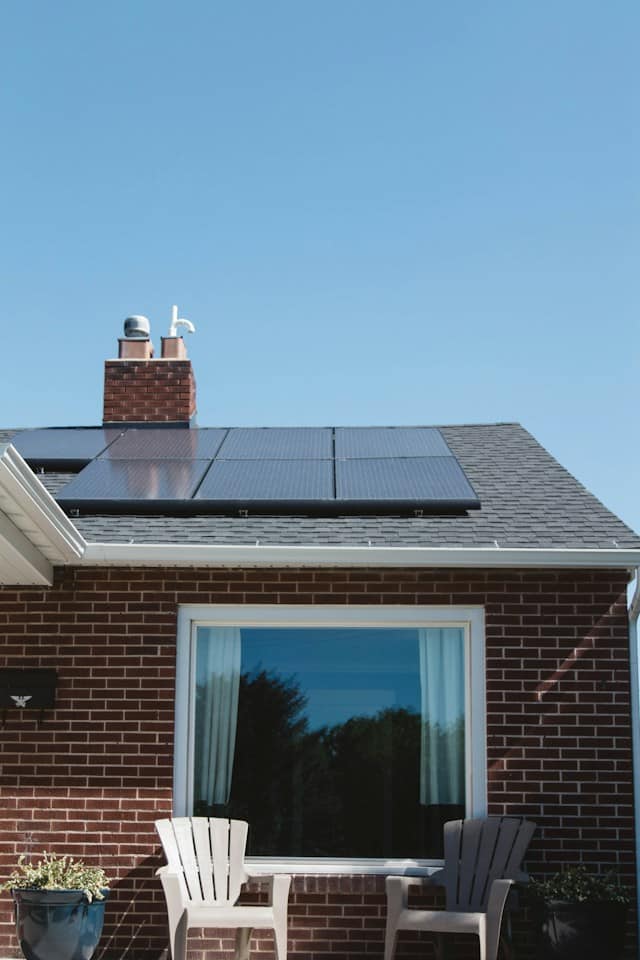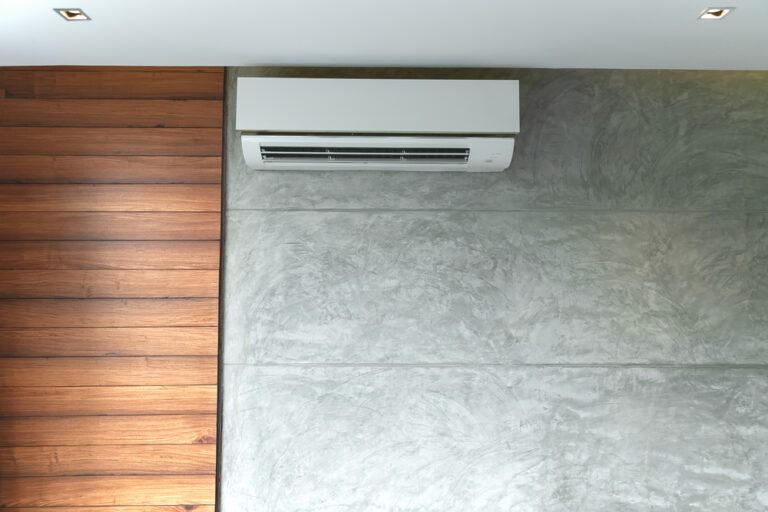In the ever-evolving landscape of home climate control, heat pumps have emerged as a versatile and eco-friendly solution, transforming the way New Zealanders approach heating and cooling. As the popularity of these systems continues to soar, it is important to unravel the complexities and misconceptions surrounding this technology. This exploration aims to provide a basic understanding of heat pumps, debunk prevailing myths, and shed light on the number of advantages they offer in the distinctive context of New Zealand.
The introduction of heat pumps into New Zealand’s homes signifies a shift in how individuals perceive and manage their indoor climate. As the nation grapples with diverse climatic patterns, understanding the intricacies of heat pump technology becomes crucial for informed decision-making.

Dual Functionality: Beyond Seasonal Assumptions
The common misconception that heat pumps only serve as winter heating solutions oversimplifies their capabilities. Beyond their primary function of efficiently warming homes during colder months, heat pumps boast dual functionality, seamlessly transitioning into cooling mode when the weather demands it. This adaptability ensures year-round comfort, a feature particularly beneficial in New Zealand with its diverse climate patterns ranging from mild winters to warm summers.
The mechanism behind this versatility lies in the heat pump’s ability to transfer heat energy between indoor and outdoor units. During colder months, the heat pump extracts heat from the outdoor air and pumps it inside. Conversely, in warmer months, it reverses the process, extracting heat from indoor air and expelling it outside. By understanding this dynamic process, users can maximise the benefits of their heat pump throughout the entire year, making them an ideal solution for New Zealand’s temperate climate.
Understanding the complexity of dual functionality underscores the transformative potential of heat pumps, positioning them as comprehensive climate control systems adaptable to the varying needs of New Zealand households.
Intelligent Thermostats
In addition to dual functionality, modern heat pumps often work with intelligent thermostats. These thermostats not only enhance user convenience but also contribute to energy efficiency. They can learn household patterns, adjust temperatures based on occupancy and optimising energy consumption. The unity between dual functionality and smart thermostats further elevates the efficiency and adaptability of heat pumps in the New Zealand context.
Efficiency Unveiled: Navigating Temperature Extremes
Addressing scepticism regarding heat pump efficiency, especially in colder temperatures, is paramount. Traditional air-source heat pumps may experience a minor decrease in efficiency in chilly conditions, leading to the misconception that they are unsuitable for colder climates. However, technological advancements have considerably decreased this concern.
Modern heat pump models are carefully engineered to operate optimally, even in sub-zero temperatures. These advancements include improved compressor technology and the integration of auxiliary heating elements to ensure consistent and efficient performance regardless of external conditions. Moreover, ground-source heat pumps, which extract heat from the stable temperature of the ground, remain consistently efficient irrespective of external air temperatures.
A comprehensive understanding of these technological innovations dispels the notion that heat pumps are only effective in moderate climates. Instead, it positions them as reliable and efficient solutions for New Zealand’s diverse weather patterns, showcasing their adaptability to temperature extremes.
Cold Climate Heat Pumps
To address the efficiency concerns in colder climates, manufacturers have introduced specialised cold-climate heat pumps. These models are designed to operate efficiently in extremely low temperatures, ensuring consistent performance even during the coldest winter days. The integration of advanced defrosting mechanisms and enhanced insulation further contributes to their effectiveness in New Zealand’s varied climate conditions.
Economics of Heat Pumps: Dispelling the Cost Barrier
The prevailing notion that heat pumps come with exorbitant installation costs can act as a significant barrier to adoption. It is crucial, however, to shift the perspective from initial expenses to long-term financial benefits. Many homeowners in New Zealand discover that the upfront investment in a heat pump is offset by substantial energy savings over time.
To further dispel this misconception, a closer examination of the evolving market dynamics and technological advancements is necessary. As the demand for heat pumps rises and competition among manufacturers increases, installation costs are likely to decrease. Additionally, the long lifespan of heat pumps, often exceeding 15 years with proper maintenance, contributes to their cost-effectiveness over the years.
Exploring the economic aspects of heat pump adoption unveils a compelling financial case. It emphasises the potential for homeowners to not only recoup their initial investment through energy savings but also to benefit from decreasing installation costs and the long-term durability of these systems.
Incentive Programs for Energy-Efficient Homes
In addition to long-term cost savings, homeowners in New Zealand can explore various incentive programs aimed at promoting energy-efficient homes. Some regions offer grants or subsidies for installing energy-efficient systems like heat pumps. By taking advantage of these programs, homeowners not only contribute to environmental sustainability but also alleviate some of the initial financial burdens associated with heat pump installations.
Green Tech Reality: Environmental Stewardship with Heat Pumps
Contrary to the misconception that heat pumps harm the environment, these systems are heralded as eco-friendly alternatives. The key lies in understanding the fundamental principle of heat transfer that underlies their operation. By utilising electricity to transfer heat, rather than burning fossil fuels directly, heat pumps significantly reduce carbon emissions.
As New Zealand intensifies its commitment to sustainability and transitions to renewable energy sources, the environmental impact of heat pumps is poised to decrease even further. Modern heat pumps are designed with energy efficiency in mind, achieving high Seasonal Energy Efficiency Ratios (SEER) and Coefficient of Performance (COP) ratings. These metrics indicate the effectiveness of a heat pump in converting electricity into heating or cooling output.
A comprehensive exploration of the eco-conscious features of heat pumps positions them as pivotal players in the collective effort towards a greener and more sustainable future. As the energy landscape evolves, heat pumps stand as allies in reducing the carbon footprint associated with residential heating and cooling.
Life Cycle Assessment
To further emphasise the environmental benefits, consider the life cycle assessment of heat pumps. This approach evaluates the environmental impact of a product from raw material extraction to disposal. Heat pumps, with their long lifespan and energy-efficient operation, often demonstrate a favourable life cycle assessment compared to traditional heating and cooling systems. This holistic view reinforces their role as environmentally responsible choices for homeowners in New Zealand.
Maintenance Myths: Nurturing Longevity with Proper Care
Another prevailing misconception revolves around the perceived high maintenance requirements of heat pumps. In reality, these systems are designed to be user-friendly and require minimal upkeep. Routine cleaning, filter replacement, and occasional professional inspections are generally sufficient to keep them operating at peak efficiency.
Moreover, the integration of advanced features, such as self-cleaning filters in many modern heat pump models, streamlines the maintenance process, making it more accessible for homeowners. Regular upkeep ensures that the system operates efficiently, maintaining optimal performance and energy efficiency over its lifespan.
Understanding the user-friendly nature of heat pumps and the importance of proper maintenance not only dispels unwarranted concerns but also emphasises their longevity. With minimal care, homeowners can enjoy consistent comfort and efficiency, making heat pumps a reliable and low-maintenance solution for climate control.
Smart Diagnostics and Remote Monitoring
Modern heat pumps often come equipped with smart diagnostic features and remote monitoring capabilities. These advancements allow homeowners to receive real-time updates on the performance of their heat pumps. In the event of any issues, the system can often diagnose and communicate the problem, facilitating quicker and more efficient maintenance. This not only enhances the user experience but also contributes to prolonged system longevity by addressing issues promptly.

Adaptable to Renewable Energy Sources: A Sustainable Synergy
One misconception often overlooked is the assumption that heat pumps solely rely on conventional energy sources, potentially hindering sustainability goals. However, heat pumps seamlessly integrate with the broader trend of adopting renewable energy. As New Zealand continues its transition to a renewable energy landscape, coupling heat pumps with sources like solar or wind power enhances their eco-friendly profile. Understanding this synergy highlights how heat pumps can align with the nation’s overarching sustainability objectives.
Heat pumps can operate efficiently when connected to renewable energy sources, further reducing their environmental impact. By leveraging solar panels or wind turbines, homeowners can power their heat pumps with clean and sustainable energy. This not only decreases reliance on traditional power grids but also contributes to a more environmentally conscious and sustainable living.
Hybrid Heat Pump Systems
Innovations in heat pump technology include the development of hybrid systems that combine traditional heat pump functionality with advanced renewable energy integration. These hybrid systems intelligently switch between electricity and renewable sources based on factors such as energy availability and cost-effectiveness. This adaptability not only enhances sustainability but also opens avenues for homeowners to actively participate in renewable energy utilisation.
Noise Levels: Busting the Sound Myth
Some individuals harbour concerns about noise levels associated with heat pumps, particularly the outdoor unit. However, modern heat pump models are designed with noise-reduction features, making them much quieter than their predecessors. Understanding the technological innovations in noise reduction assures homeowners that heat pumps can efficiently regulate indoor temperatures without creating disruptive sound levels.
Noise reduction features include advanced compressor technology, insulated cabinets, and variable-speed fans. These elements work together to minimise operational noise, ensuring that heat pumps operate quietly and unobtrusively. By dispelling the misconception about noise levels, homeowners can confidently integrate heat pumps into their living spaces without compromising on tranquillity.
Soundscape Design Considerations
In architectural and urban planning circles, there is a growing emphasis on soundscape design, which considers the overall acoustic environment of a space. Integrating heat pumps into the design process allows for strategic placement and acoustic considerations, minimising any potential noise concerns. This holistic approach ensures that the auditory impact of heat pumps aligns seamlessly with the overall ambience of the living space.

Zoning Capabilities: Tailored Comfort for Every Room
A prevalent misconception is that heat pumps offer a one-size-fits-all solution, failing to cater to specific comfort needs in different areas of the home. However, modern heat pump systems often come equipped with zoning capabilities. This means users can customise temperatures for individual rooms or zones, optimising energy usage and ensuring personalised comfort throughout the house. Exploring the zoning capabilities of heat pumps unveils their potential for tailored climate control.
Zoning capabilities enable homeowners to create distinct climate zones within their homes, ensuring that each room maintains the desired temperature. This not only enhances comfort but also contributes to energy efficiency by directing conditioned air only to occupied areas. By understanding and utilising zoning features, homeowners can maximise the efficiency of their heat pumps, creating a customised and energy-conscious indoor environment.
Adaptive Zoning with Machine Learning
Advancements in artificial intelligence and machine learning have led to the development of adaptive zoning systems for heat pumps. These systems learn user preferences and occupancy patterns, automatically adjusting temperature zones for maximum comfort and efficiency. The integration of machine learning not only simplifies the user experience but also contributes to ongoing energy optimisation, aligning with New Zealand’s commitment to sustainable living practices.
Long-Term Investment: Appreciating Resale Value
Some homeowners may question the long-term value of installing a heat pump, especially if they anticipate selling their property. Contrary to the misconception that heat pumps don’t add to property value, these systems can enhance the attractiveness of a home on the real estate market. Energy-efficient features, like heat pumps, are increasingly valued by potential buyers, making them a wise investment not just for immediate comfort but also for long-term property appreciation.
The growing awareness of energy efficiency and sustainability in housing markets contributes to the enhanced resale value of homes equipped with heat pumps. Potential buyers recognise the benefits of energy-efficient heating and cooling solutions, positioning homes with heat pumps as desirable and forward-thinking investments. Understanding the long-term value of heat pumps encourages homeowners to view them as strategic additions that contribute to both immediate comfort and property appreciation over time.
Smart Home Integration
The integration of heat pumps into smart home ecosystems further enhances their value proposition. Smart home features such as energy usage tracking, remote control via mobile applications, and integration with home automation systems contribute to the overall appeal of a property. Potential homebuyers, increasingly tech-savvy and environmentally conscious, perceive homes with integrated smart climate control systems as modern and future-ready, positively impacting resale potential.
Government Incentives and Rebates: Tapping into Financial Support
An often overlooked aspect is the availability of government incentives and rebates for heat pump installations. Many local and national initiatives aim to encourage the adoption of energy-efficient technologies, and heat pumps often qualify for such programs. Homeowners stand to benefit from financial support, making the transition to heat pumps more economically viable. Understanding the landscape of available incentives ensures that individuals can make informed decisions that align with both their environmental and financial goals.
Government incentives can take various forms, including tax credits, rebates, or low-interest financing programs. By tapping into these financial support mechanisms, homeowners can offset the initial costs of heat pump installations, making them more accessible and affordable. A comprehensive understanding of available incentives empowers individuals to make environmentally conscious choices while leveraging financial support from government initiatives.
Regional Initiatives and Customised Incentives
In addition to national incentives, homeowners should explore regional initiatives that tailor incentives to local environmental and energy goals. Some regions may offer specific incentives for adopting heat pumps as part of broader sustainability efforts. This localised approach not only encourages regional adherence to environmental targets but also ensures that homeowners receive incentives aligned with the unique energy landscape of their area.
A Holistic Perspective for Informed Choices
As we navigate this comprehensive examination of heat pumps in the unique context of New Zealand, it becomes evident that these systems are not mere climate control devices; they are transformative technologies that adapt to the nuanced demands of the country’s climate. Dispelling common misconceptions is not merely about correcting assumptions; it’s about empowering homeowners to make informed decisions that align with their needs and values.
Embracing the benefits of heat pumps extends beyond individual comfort
This contributes to a collective movement towards a sustainable and eco-conscious future for New Zealand. With each technological innovation and deepening awareness, the positive impact of heat pumps on comfort, savings, and the environment solidifies their status as integral components of modern home solutions. Through a holistic perspective that encompasses dual functionality, efficiency advancements, economic considerations, environmental stewardship, maintenance practices, adaptability to renewable energy, noise levels, zoning capabilities, long-term investment value, and government incentives, heat pumps emerge as a comprehensive and forward-looking solution for New Zealand households. This nuanced understanding empowers individuals to make choices that not only cater to their immediate needs but also contribute to the broader goal of fostering sustainable and resilient communities.



